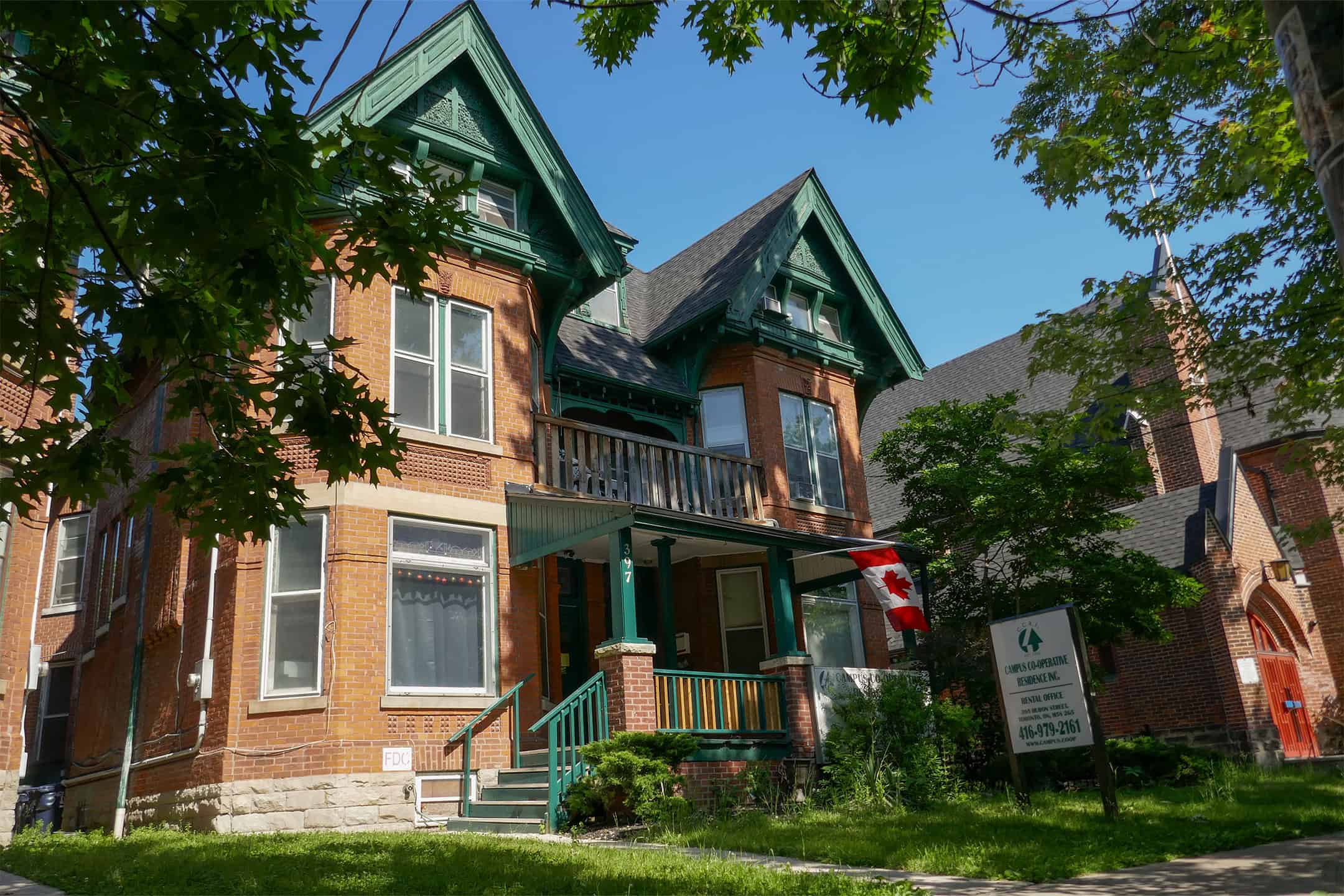Have you ever thought about what happens when the soap from your dishes and hands ends up down the drain? The truth is, the soaps and sponges we use are not just cleaning our kitchens and bathrooms — they’re leaving a mark on our health and planet.
It’s time we reconsider our choices in cleaning products. We, as part of the Campus Cooperative Residence Inc. (CCRI), recently transitioned to sustainable cleaning practices. CCRI is Canada’s oldest housing cooperative of 23 houses in downtown Toronto, which provides affordable housing to over 200 post-secondary students — not limited to U of T.
We hope our experience can drive more students and residents to embrace eco-friendly cleaning practices.
Everyday soaps impact our health and the environment
Researchers from the US and Mexico reveal that the chemicals in common household soaps are polluting human and marine health. The familiar brands of soap are often packed with risky substances like parabens, phthalates, and triclosan, which are chemicals that can enter the body through ingestion or skin contact. While they keep the soaps effective and long-lasting, they’re not as friendly to our bodies or the environment when we wash them down the sink.
Parabens, while great at keeping bacteria at bay, affect our hormonal balance and reproductive health. Phthalates, which make soaps more durable, are associated with cognitive and metabolic disruptions. Triclosan fights germs but lingers in rivers and lakes once washed away, posing risks to aquatic creatures due to its persistence, bioaccumulation, and toxicity.
While many of these chemicals can be broken down by our bodies in small amounts, our widespread exposure to these soaps has resulted in researchers finding samples of human tissue with various parabens and phthalates in them. Surfactants, which are cleaning agents in detergents, mix oil and water to remove dirt and grease effectively. However, when they enter waterways, they can disrupt ecosystems and contaminate drinking water.
These are just a few harmful substances. We strongly believe that the negative impacts of these soaps calls for a thoughtful look at what goes into our cleaning products and how we can make safer choices for ourselves and the planet.
Biodegradable soaps drive student leaders to victory
When I recognized the harmful impact of cleaning products, I undertook an initiative for CCRI to transition to biodegradable cleaning products. In the spring of 2024, just before the executive board elections at CCRI, I sparked a sustainability debate with a simple, research-backed proposal: asking the community to switch to biodegradable soaps.
Students rallied behind the eco-friendly cause by voting for candidates who supported the proposal. Cameron Wheeler and my co-author, Priyanka Verma, who both supported the initiative, respectively secured positions as President and Treasurer. We believe this victory highlights that students support leaders championing environmental responsibility and that green promises can drive electoral success.
CCRI’s blueprint: Phasing out conventional soap
After the elections, the CCRI’s board of directors voted for the switch to biodegradable soap. Wheeler, who is a third-year student at Toronto Metropolitan University, recalls that “the price increase [between the new and old soaps] is around 30 per cent.” Despite this, Verma rearranged the budget to afford both biodegradable and conventional soaps.
In an interview with us, Wheeler expressed confidence about phasing out conventional soap entirely. Wheeler supported this initiative in her presidential campaign, but said that the slow switch is a pilot project at the present. She affirmed that, if the houses with biodegradable soap stay within budget, the CCRI can phase out the conventional soap.
At CCRI, sustainability isn’t just a buzzword to us — it’s a commitment we’re growing into daily. Wheeler explained that because the CCRI belongs to a cost-cutting program that aims to keep its residence affordable to students, they “are limited to one supplier of products,” and the suppliers do not offer biodegradable options for every product the CCRI buys.
“I was really hoping we could transition our entire suite of products,” she added. This campaign is not without challenges, but we are on an ongoing journey to encourage suppliers to invest in eco-friendly products, too.
Paving the way for a fully biodegradable future
Recognizing the importance of choice in fostering sustainable habits, CCRI also allows members to purchase their preferred eco-friendly supplies while offering reimbursements. Looking ahead, we’re eager to make all CCRI household supplies biodegradable, from laundry detergents to bathroom cleaners — setting the stage for a complete green overhaul.
Education will be key in this transition. We are planning more initiatives to inform members about the benefits of using eco-friendly products and how they can make these purchases. With a growing community backing, we hope to increase the budget at the next CCRI General Meeting, potentially enabling partnerships with suppliers committed to sustainability.
Our ultimate goal is to ensure all products at CCRI are eco-friendly and cruelty-free. By transitioning to products that do not participate in animal testing or use animal by-products, we aim to underscore the CCRI’s commitment to environment and ethical standards.
We call on U of T students, academic dons in student housing, student organizations, and residents in social housing organizations to reach out to their administrators and advocate for eco-friendly cleaning products.
We believe the story of our CCRI project not only highlights how students can push for sustainability but can also offer a blueprint for U of T student residences and the over 180 housing cooperatives in Toronto. In our opinion, this case exemplifies how grassroots efforts within a community can lead to significant environmental initiatives, foregrounding student leadership’s role in promoting sustainability in academic environments.
Harshit Gujral is a fourth-year PhD student studying computer science studying the impact of the environment on health. He is a member of CCRI and Climate Justice UofT.
Priyanka Verma is a third-year PhD student studying technology in participatory budgeting and voting. She is the treasurer of CCRI.



No comments to display.